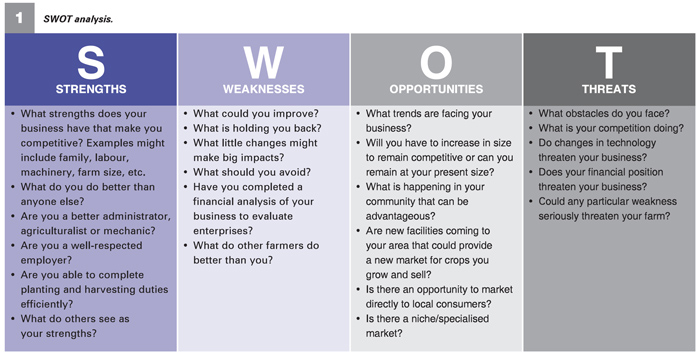March 2019
| Jenny Mathews, Pula Imvula contributor. Send an email to jenjonmat@gmail.com |  |
Every farmer needs to view him or herself as a fully-fledged businessman no matter how large or small – and embrace good business management principles. In this article we look at farming through an entrepreneurial magnifying glass.
General Eisenhower said, ‘Neither a wise man nor a brave man lies down on the tracks of history to wait for the train of the future to run over him’, which means that every farmer should be scanning the sector and planning his actions very carefully according to the information he gleans.
Scanning the physical environment
At the moment where I live in the North West Province, farmers are busy nurturing young summer crops, waging war against weeds and pests and anxiously monitoring weather reports and the blue, searing hot skies which seem to stretch forever. We long for the gentle curtain of cloud to be drawn across the sun and soft veils of soaking rain to descend upon our dry, thirsty land – but we won’t complain if the skies turned angry with dark, thunderous clouds which spit tongues of lightening and send torrential rains either!
Diverse challenges confront farmers witnessing the fields wither in the heat. A Colorado State University study revealed that skill is required to manage our businesses in such times since stress and depression cause farmers to become vulnerable. Among behavioural pattern spikes observed are increased substance abuse, on-farm accidents and injury and suicides. Statistics reveal increased conflict between husbands and wives and raised tensions between parents and children, with a knock-on effect into poor school performance and lower self confidence levels.
The choice lies in how one reacts in these circumstances. It all comes down to resilience. Resilient people are ones who have developed leadership competencies and are likely to choose the ‘fight’ rather than ‘flight’ option. These individuals seek solutions and reach out for help. Resilience helps us to adjust our thinking away from a sense of lack towards a path where we concentrate on our options – it moves us from inaction to action on the farm and in our relationships.
A businessman looks to the future
Jim Carroll a leading futurist observes, ‘Some people see a trend – and see a threat. Innovators see the same trend – and see an opportunity.’ He believes we need to acquire ‘business agility’. This empowers us to respond to fast external trends in order to spot opportunity, ward off challenge and align resources for fast success. Farmers, who maintain this is not relevant to them, make a mistake. This is exactly why some for example, have successfully embraced the futures trading platforms while others stand by frustrated and negative.
How do we achieve this business agility while we contend with issues which make us feel burdened and overwhelmed? We re-focus on the big picture and get a vision for our operations where we can thrive within the change. Carroll says issues we could focus on are:
Bill Gates has said we always overestimate the rate of change that will occur in the next two years – but we underestimate the rate of change which will occur over ten years. Ten years ago, there was no twitter, no Amazon Kindle reader and Facebook was used mainly by university students – even Apple and iPads were the playground of few – and yet today they are critical tools for everyday life. There is no doubt that we need to keep our finger on the pulse of change.
A few changes mentioned in Carroll’s ‘25 Trends for 2025’ are:
Examine your business right now
I challenge you to start this new year by conducting a SWOT analysis of your business. The SWOT analysis is a first step towards strategic business planning and is a technique used to analyse the strengths (S), weaknesses (W), opportunities (O) and threats (T) of a business. This is a useful tool to discover more about these four aspects of your business and will lead you to look at potential for success and be more aware of risks.
Draw four squares on a blank page as illustrated in Table 1 and fill in any thoughts that come to mind in the relevant blocks. Strengths and Weaknesses will be internal matters which YOU can CONTROL, INFLUENCE and CHANGE while the bottom two squares will be Opportunities and Threats which focus on EXTERNAL issues which you cannot necessarily control – but can possibly manage in a way that reduces the negative impact on yourself and your business.
The SWOT analysis is not a once-off exercise but rather an annual review. You use it to review achievement, measure efficiencies and identify areas that need improvement. If we are serious about business success we need to be serious about our approach to strategic planning and follow through on it throughout the year. May 2019 be a fulfilling and rewarding year for us all.

Publication: March 2019
Section: Pula/Imvula